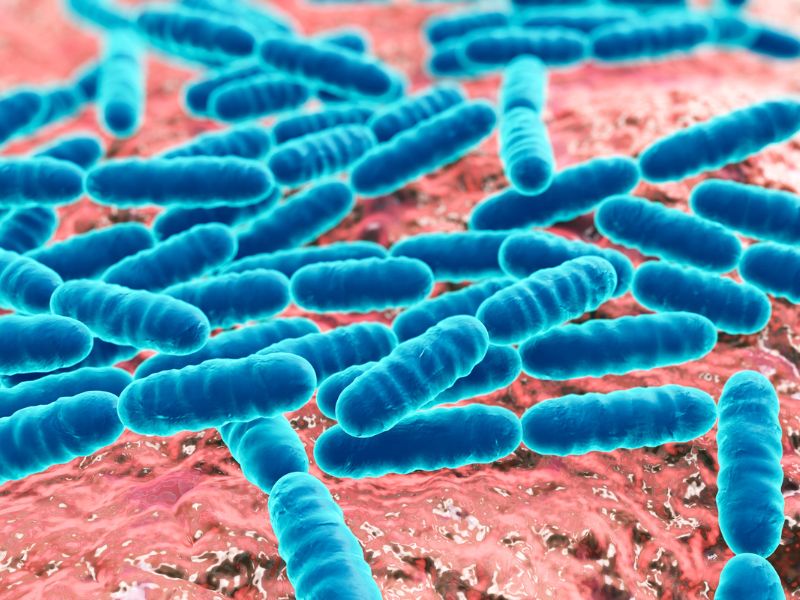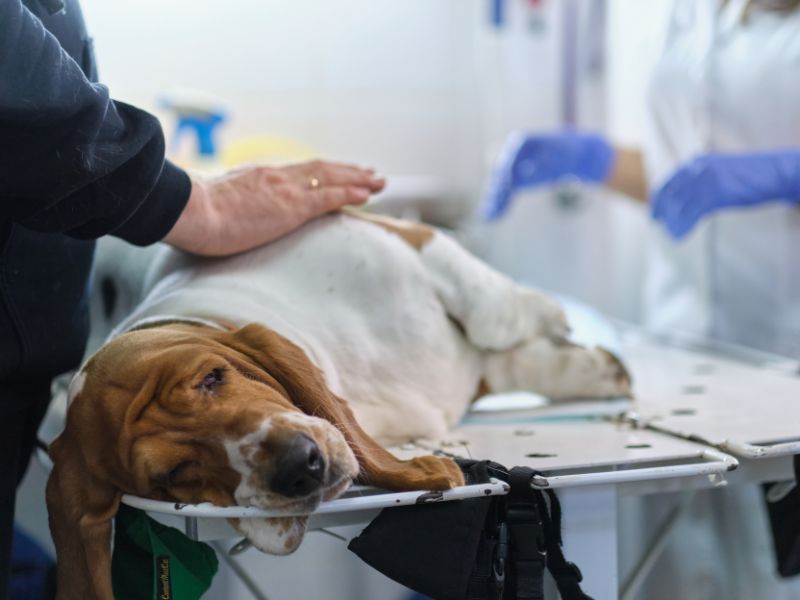When we think of our dogs, we often picture wagging tails and playful barks, but beneath their furry, wagging tails lies a complex world of biology, particularly in their guts. Dogs’ gut health is a fascinating world of microorganisms and a balance crucial to their overall well-being. It’s a place where probiotics and antibiotics can emerge as significant players – one nurturing life, the other fighting disease. But how do they coexist? Can they work together for the benefit of our dogs? Let’s talk about it!
The Canine Gut: A Microbial Universe
Imagine a crazy populated city within your dog’s gut, where trillions of microorganisms – bacteria, fungi, viruses – live and thrive. This microbiota is not just a passive community; it’s actively involved in digestion, nutrient absorption, and even the immune system. The harmony of this ecosystem is delicate, easily disrupted by factors like diet, environment, and especially medications like antibiotics. An imbalance here, known as dysbiosis, can lead to a ton of health issues, ranging from digestive upset to more serious conditions.
Recent research has shed light on this complex interaction. A study from the Journal of Animal Science and Biotechnology highlights how a dog’s gut microbiome is intricately linked to its overall health, affecting everything from energy levels to mood. It’s a reminder that the health of our dogs is deeply rooted in this unseen world.
Probiotics: The Guardians of Gut Health
So, when talking about dog probiotics and antibiotics, we start with probiotics. They’re often hailed as the guardians of gut health. They are live, beneficial bacteria that can do wonders for your dog’s digestive system when the right strains are ingested in the right amounts. They’re like new, friendly residents moving into the gut’s city, helping to restore balance. Probiotics aid digestion, support the immune system, and even combat harmful bacteria.
The benefits of probiotics in dogs have been backed by science. A pivotal study in the Veterinary Microbiology journal demonstrated how certain strains of probiotics can effectively manage and prevent diarrhea in dogs, a common ailment that troubles many pet owners.
But the role of probiotics isn’t just limited to treating symptoms. They’re also about maintaining a healthy gut environment, especially after it has been compromised.
 Antibiotics: The Necessary Disruptors?
Antibiotics: The Necessary Disruptors?
Antibiotics are often the only line of defense in treating bacterial infections in dogs. A bacterial infection is one where the harmful bacteria just overwhelms the good. Antibiotics attack harmful bacteria, safeguarding your pet from potentially life-threatening conditions. However, their work is like that of a double-edged sword. While targeting the bad bacteria, they often inadvertently wipe out some of (usually most) the good ones too. This disruption can leave a dog’s gut a hot mess and open them up to even more severe issues.
The impact of antibiotics on the canine gut microbiome is a topic of ongoing research. Studies, like one from the Journal of Veterinary Internal Medicine, have shown that prolonged antibiotic use can cause significant changes in the gut microbiome. This knowledge has led to a more cautious approach to antibiotic use in veterinary medicine, emphasizing the need for balance and more caution if a vet is to prescribe antibiotics.
What Conditions Are Treated With Antibiotics in Dogs?
A veterinarian will commonly prescribe antibiotics for dogs to treat a variety of bacterial infections. These include skin infections, respiratory issues, urinary tract infections, ear infections, and even gastrointestinal disorders that are accompanied by diarrhea. They can be particularly effective in tackling infections caused by specific bacteria and are a critical part of veterinary medicine for maintaining canine health.
Can You Give Your Dog Human Antibiotics?
Giving human antibiotics to dogs without a veterinarian’s guidance is generally not advisable. Human antibiotics may not be appropriate in dosage or formulation for dog use and could cause harm when treating infections. Always consult a veterinarian before administering any medication to ensure it is safe and effective for your pet.
Can You Give Dogs Probiotics and Antibiotics at the Same Time?
Ahhh…the age-old question…how can antibiotic treatment and probiotics work at the same time? As more research continues, veterinary medicine clinicians agree that it is often beneficial to give dogs probiotics and antibiotics simultaneously. Probiotics can help mitigate the negative effects of antibiotics on a dog’s gut microbiome by replenishing beneficial bacteria. However, it’s important to choose an antibiotic resistant probiotic so they can continue to grow and thrive and repopulate good bacteria.
What Are The Most Common Antibiotics For Dogs?
The most common antibiotics prescribed for dogs include Amoxicillin, Cephalexin, Enrofloxacin, and Clindamycin. These antibiotics are chosen based on the type of infection, the specific bacteria involved, and the dog’s health condition and history. When prescribing most of these to treat infections, a veterinarian will likely recommend supplementing with probiotics.
What Conditions Can Be Treated With Antibiotics, And What Are The Best Options?
Common antibiotics can treat various conditions in dogs, such as bacterial skin infections, ear infections, respiratory tract infections like pneumonia, urinary tract infections, and even periodontal disease. The best antibiotic option depends on the infection type, the bacteria’s susceptibility, and the dog’s health status. Amoxicillin, for example, is often used for skin and urinary tract infections, while Clindamycin is effective against certain oral and dental infections.
What Are Potential Side Effects of Antibiotics in Dogs?
The side effects of antibiotics in dogs can include gastrointestinal upset, such as diarrhea or vomiting, allergic reactions, changes in appetite, and sometimes changes in behavior. In some cases, prolonged use can lead to antibiotic resistance or significant alterations in the gut microbiome. Your dog’s gut health is so important to their overall health; antibiotic treatments should really be a last resort.
What Else Should I Know About Antibiotic Treatment For Dogs?
When administering antibiotics to dogs, following the veterinarian’s instructions precisely is important. This includes the dosage, the frequency of administration, and the full course duration, even if the dog appears to be better. Abruptly stopping antibiotic treatment can lead to a resurgence of the infection and contribute to antibiotic resistance.
Uses: Antibiotics For Dogs
Antibiotics are used in dogs to treat bacterial infections. They work by killing or inhibiting the growth of bacteria that cause infection. The specific antibiotic used depends on the type of infection, the dog’s health history, and any potential drug interactions.
Antibiotic Safety
For the safe use of antibiotics in dogs, it’s crucial to have a proper veterinary diagnosis and prescription. Overuse or misuse of antibiotics can lead to resistance, making bacterial infections harder to treat in the future and possibly creating antibiotic resistant bacteria. Monitoring the dog for side effects and reporting any concerns to the veterinarian is also essential.
Antibiotics Commonly Prescribed for Pets
Apart from the antibiotics mentioned earlier, other commonly prescribed antibiotics for pets include Doxycycline, used for respiratory and tick-borne diseases, and Metronidazole, often used for gastrointestinal infections. The choice of antibiotic is based on its effectiveness against the specific type of bacteria causing the infection and the individual needs of the pet.
Symbiosis: When Probiotics Meet Antibiotics
The relationship between probiotics and antibiotics might seem at war, but it’s more symbiotic than you’d think. Giving probiotics during or after an antibiotic course can help restore the balance disrupted by the antibiotics. It’s like repopulating the gut’s city with beneficial residents after a storm.
The timing and dosage of probiotics while your dog is on antibiotics is critical, though. Veterinary experts often recommend waiting a few hours after administering antibiotics before giving probiotics. This ensures that the antibiotics don’t neutralize the probiotics, allowing each to perform their function effectively.
The dance between probiotics and antibiotics in the realm of canine health is a delicate one. Both play crucial roles – probiotics in maintaining gut health and antibiotics in fighting infections. The key is balance and understanding that each dog is unique. What works for one may not work for another, and this individualized approach can lead to the best outcomes.
It’s also important to give the best probiotic supplements. To help combat the negative effects of antibiotic treatment in dogs, probiotic supplements like Bernie’s Perfect Poop can be extremely beneficial. The probiotics we use in Perfect Poop are spore-hardy and gram-negative, which means they are more capable of withstanding the powerful antibiotic effects. They help replenish the beneficial bacteria in the gut that antibiotics may deplete. This restoration is crucial because a healthy gut microbiome is essential for good digestion, nutrient absorption, and a strong immune system.
We combine probiotics with prebiotics and digestive enzymes. The prebiotics we include serve as food for the probiotics, fostering an environment where beneficial bacteria can thrive. Digestive enzymes further help in breaking down food, ensuring maximum nutrient absorption. This combination helps restore gut health after antibiotic use and contributes to overall digestive wellness and immune support in dogs.
Additionally, we created it to be easy to give, and delicious for your dog. When they’re struggling with sickness and possible antibiotic side effects, we want it to be an easy way to help them feel better.
As we continue to uncover the mysteries of the dog gut, we keep seeing the really intricate design of dog guts, and that’s very clear to see when we watch how antibiotics and probiotics in dogs react to each other! Good thing we know how to help keep your dog’s gut as healthy as it can be, no matter what comes at it!



